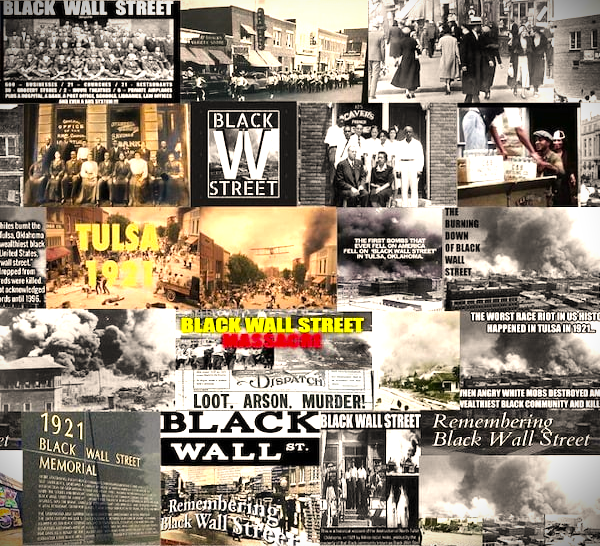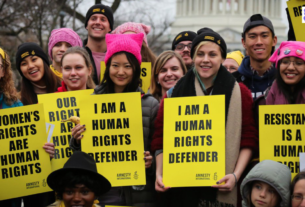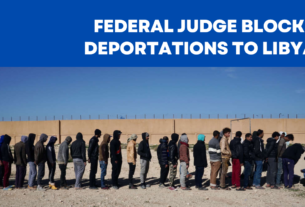In the echo of Greenwood’s ruins, America faces a question that will not die: What is owed when justice was never served?
A century ago, Tulsa’s Greenwood neighborhood was a beacon of Black excellence, a vibrant hub of enterprise dubbed “Black Wall Street,” teeming with over 600 Black-owned businesses, medical offices, hotels, and jazz halls. It was a promise kept, however briefly, of the American dream for a people who had been enslaved just two generations earlier.
Then, in the span of 18 hours in 1921, that promise was torched.
An armed white mob with explicit support from city and state authorities razed 40 blocks of Black prosperity, killing an estimated 300 people, leaving 11,000 homeless, and vaporizing millions in Black wealth. Not one white perpetrator was ever held accountable. Not one Black survivor was compensated.
Today, Greenwood is a shadow of its former self scattered plaques and murals marking a thriving world that once stood. Amid the empty lots and a lone museum, the descendants of survivors like Kristi Williams are still fighting for something that should never have required a fight: reparations.
Reparations: Not Just a Word, but a Debt
To Williams and others, reparations are not abstract. They are rooftops. Grocery stores. Home equity. The basic infrastructure of a community, denied to generations of Black families through the systemic erosion of opportunity beginning with the massacre and compounded by decades of redlining, disinvestment, and exclusionary policy.
Williams’ coalition has asked the city for $25 million in housing aid for descendants, a modest sum compared to the generational wealth that might have flourished if Greenwood had been allowed to survive. That proposal, however, is caught in political quicksand: legal battles, conservative backlash, and a broader reluctance to confront uncomfortable truths about the past.
A Tale of Two Cities and a Persistent Gap
Tulsa is emblematic of a wider American paradox. In 1920, Black homeownership in the city matched that of whites. Today, it lags far behind. Nationally, the median Black household has just 15% of the wealth of the median white household. Life expectancy in Tulsa’s Black neighborhoods is five years shorter. The prosperity that Greenwood represented wasn’t just destroyed, it was systematically kept from re-emerging.
Karlos Hill, a historian and author of The 1921 Tulsa Race Massacre: A Photographic History, believes Greenwood was more than a neighborhood, it was proof that Black America could succeed despite every obstacle.
“When Greenwood burned, so did the belief that success alone could shield Black communities,” Hill said. “The massacre was not only a theft of life and property, but a theft of hope.”
From Commemoration to Compensation
Tulsa has commemorated its past. It has erected markers, hosted ceremonies, and even curated exhibitions on the massacre. But descendants say that memorials, while necessary, cannot substitute for justice.
In 2023, the Oklahoma Supreme Court dismissed a lawsuit by massacre survivors seeking restitution, effectively closing one legal avenue. For many, the decision reaffirmed a bitter truth: in the eyes of the state, even living witnesses to historic racial violence are not owed a remedy.
But legal denials have not silenced the call. Across the country from Evanston, Illinois, to California communities are exploring reparations for Black Americans. And the question lingers: if not now, after the global reckoning following George Floyd’s murder then when?
The Price of Inaction
Reparations are often criticized as divisive or unfair to those not personally involved in historic wrongs. But such arguments ignore the benefits financial, structural, and social that generations of white Americans inherited precisely because others were systematically excluded.
“To do nothing,” Williams says, “is to accept a legacy of theft. And to say that some communities are simply disposable.”
The cost of repairing Greenwood is high but the cost of not repairing it may be higher. It is the erosion of trust in institutions. It is the slow death of communities never allowed to rebuild. It is a democracy that cannot face its own mirror.
Until reparations become more than a conversation, Greenwood will remain not just a memory but a moral wound that won’t heal.
Because in Tulsa, the ashes have settled. But the debt remains.




